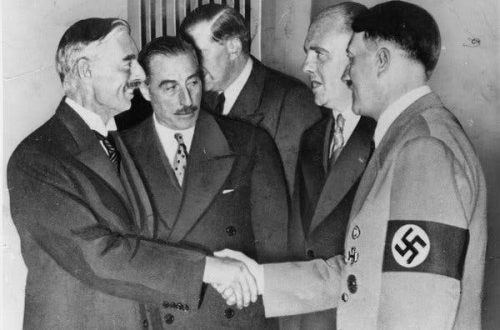A few weeks of late-summer relaxation and (middle-aged) debauchery has prevented me from getting round to a long-promised discussion about the right-wing historian Niall Ferguson, who has recently emerged as an all-purpose hate-figure for the “anti-imperialist left” and been strongly criticised as an apologist for imperialism and capitalism .
Ferguson’s own priviliged childhood in Kenya (which seems to get mentioned an awful lot in his books) and his assertions that the Rothschild family helped create the stable international conditions which promoted worldwide economic growth in the 19th century along with his oft-stated idea that the United States is not nearly involved enough in the affairs of other countries (Ferguson would like the US to take its “duties” as an “empire” much more seriously) combine to produce an apoplectic effect on Gallowegians and suchlike.
Whilst I personally do not agree with a lot of what Niall Ferguson says (I am, as I suspect are many others whose upbringing was not “standard middle-class Brit” well used to reading and interpreting history which has long contained innate bias towards my “betters”) it does seem to me that some criticisms, such as those of Johann Hari are fairly well-founded and engage to some extent with what Ferguson actually says, but that there has also been a lot of “playing the man rather than the ball” amongst Ferguson’s critics and that his revisions of the empire narrative need to be engaged with and challenged creatively rather than being merely dismissed as being beyond the pale.
Apart from his specialism in financial and economic history, Ferguson also promotes what he calls “Virtual history” : the exploration of counterfactuals – generally undertaken so as to show how nothing is certain to happen and that there are no laws of history that will determine how how anything comes about, only the actions of individuals will determine whether the world becomes a better or worse place. This, of course, is another assertion which does little to endear him to those of a Marxist persuasion….
In a rather long article in Time Magazine, Ferguson imagines how George Bush’s war against terror will be treated by historians about 25 years hence (if you can’t be bothered reading it all then you will be reassured to know that technology, like the US cavalry eventually saves the day.)
Some of his points seem to me to be exactly the sort of thing that Harry’s Place readers like to get their teeth into:
It became fashionable in the years after 9/11 to speak of “Islamo-fascism.” In reality, the enemy was more like communism in its heyday: international in its scope, revolutionary in its ambitions and adept at recruiting covert operatives in the West. The right tactic to defeat it was not conventional warfare but tedious intelligence work—monitoring telephone calls, tracking financial transactions, shadowing suspects, infiltrating cells.
I wonder why Ferguson chose to look back from only 25 years in the future? A wiser man would surely have felt that 25 years after an event was much “too early to tell.”


